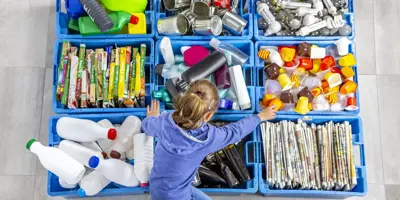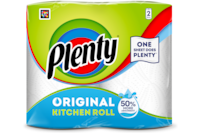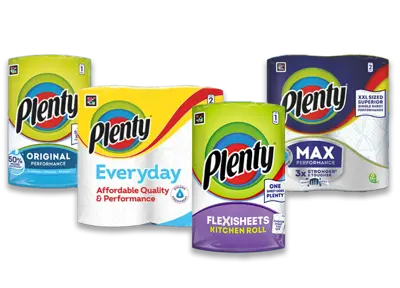1 person found this helpful

From providing ice-cold refreshment on a hot day, to keeping your loved one’s now-drooping and decaying houseplant alive when they’re away, we all know the importance of water. Although we may take it for granted, fresh water is one of our most precious limited resources. It’s only natural that we would want to learn how to save water at home.
With a handful of simple tweaks to your everyday life, saving water is actually really easy to do. Plus, it’s a great way to reduce your water bill and potentially save a few pennies! So, how can we save water? Keep reading to find out six of the easiest ways to cut down the amount you use.
1. How to save water in the bathroom
Along with the kitchen, the bathroom is the place in the home where the most water gets used – so there’s usually ways to save. Bath time can be one of the most soapy, slippery and soggy playtimes there is... And while you may always wonder how those soggy soap sud footprints made their way onto the carpet, with these tips, you won’t be left confused about how to conserve water:
- Turn the tap on halfway when you’re washing, rather than turning it fully.
- Put the plug in the basin rather than just continually running water.
- Turn off the tap when you’re brushing your teeth and save up to 12 litres of water!1
- Take a quick shower rather than having a deep bath.
2. How to save water at home with pre-cleaning
One of the best ways of saving water is to wipe or scrub grime away before you start washing objects using a strong and absorbent piece of kitchen paper. Items such as greasy bikes, muddy shoes and kitchen appliances will more often than not require less water after they’ve been wiped down first. So next time you’ve returned victorious, having finally beaten your loved ones home from the park, covered head to toe in flecks of mud – help save water by giving your bike, shoes (and, yep, even the end of your nose – just there!) a quick wipe first before washing with water.
One of the best ways of saving water is to wipe or scrub grime away before you start washing objects using a strong and absorbent piece of kitchen paper. Items such as greasy bikes, muddy shoes and kitchen appliances will more often than not require less water after they’ve been wiped down first. So next time you’ve returned victorious, having finally beaten your loved ones home from the park, covered head to toe in flecks of mud – help save water by giving your bike, shoes (and, yep, even the end of your nose – just there!) a quick wipe first before washing with water.
3. Ways to save water in the kitchen through mindful dishwashing
Whether it’s the seemingly ever-growing pile next to the sink, or the trip around the house to collect wayward mugs and cups, it’s safe to say that there will always be dishes to wash. Dishwashing also a daily chore that can use a significant amount of water.
By adopting some mindful dishwashing habits, you can be saving water without compromising on cleanliness. Knowing that you’re doing your bit to reduce water usage when washing the dishes can give this chore a sense of satisfaction! Here are some kitchen tips for how to reduce water usage:
- Scrape, don't rinse. Before loading dishes into the dishwasher, scrape off excess food scraps instead of rinsing them under running water – this is a great way to save water. Pre-rinsing can waste a lot of water, especially if you have a newer dishwasher model designed to handle dirty dishes without the need for excessive pre-cleaning.
- Wait for a full load. Run the dishwasher only when it's full to maximise water usage efficiency - running a partial load wastes water and energy. If you need a particular dish, consider handwashing it instead of running the dishwasher for a few items and you’ll be saving water instantly.
- Handwash mindfully. If you prefer handwashing dishes, do it efficiently as an easy way to conserve water. Fill one basin with soapy water and the other with clean water for rinsing and try to avoid running the tap continuously while scrubbing. Use a high-quality, absorbent kitchen cloth or sponge to clean multiple dishes with minimal water.
- Reuse rinse water. While rinsing fruits and vegetables in the sink, collect the water in a basin or a container. This "grey water" can be repurposed to water indoor plants or your garden, reducing water wastage and feeding your loved one’s plant babies at the same time! There’ll be no houseplant deaths on your watch...
- Fix leaks promptly: Check for any leaks in your kitchen sink and dishwasher and fix them when you can to reduce the water bill. Even a small drip can lead to a significant water loss over time, plus it can cause mould and other fungi. That’s not the type of mushroom you want in your kitchen!
By implementing these practices in the kitchen, you can contribute to saving water – every small change helps, and daily habits can collectively make a significant impact on water conservation efforts. But we know it can be difficult to fit these changes in to your life – just do what you can and remember: you’ve got this!
Tip
Did you know we’re doing our part to make our products that little bit more sustainable? We are constantly innovating to reduce our carbon footprint. One of our key commitments is to
4. How to conserve water through washing machine usage
Being more efficient with your washing machine is one of the best ways to conserve water at home. Rather than washing clothes just because you’ve got a few items that need cleaning, leave them until you have a full load. Think of the amount of water doing fewer washes will save in a year!
Also, try running your machine on quicker and cooler settings – that’ll save water and electricity in one go. You can always pre-treat stubborn stains and odours, if, say, that spoonful of homemade-with-love curry didn’t quite make it into your loved one’s mouth. Yep, another white T-shirt bites the turmeric-stained dust.
5. Tips on how to save water with home repairs
A leaky tap can be a nuisance in a number of ways – the constant dripping noise, the inevitable puddles, and the extra money you’ll pay in your bills, not to mention the waste!
How can we save water like this? Sometimes all it takes is the tightening of a nut or a replacement washer, but for everything else you can call in a plumber. The money you spend fixing those pesky leaks will save you in the long run, both reducing the water bill and doing something good for the environment. To stem the flow while you wait for the plumber, try wrapping the pipe in a few pieces of absorbent kitchen paper and secure with heavy-duty tape.
Being more efficient with your washing machine is one of the best ways to conserve water at home. Rather than washing clothes just because you’ve got a few items that need cleaning, leave them until you have a full load. Think of the amount of water doing fewer washes will save in a year!
Also, try running your machine on quicker and cooler settings – that’ll save water and electricity in one go. You can always pre-treat stubborn stains and odours, if, say, that spoonful of homemade-with-love curry didn’t quite make it into your loved one’s mouth. Yep, another white T-shirt bites the turmeric-stained dust.
Tip
Feeling handy? Lay down some strong kitchen paper on your surface and don some your DIY clothes (we all have them!) before you gloop paint all over them. Not only will this make the clean-up a breeze because you won’t have to worry about cleaning paint splashes from surfaces and clothes – but it’ll also help reduce your home water usage too.
6. How can we save water in the garden?
Your garden can need a lot of water, especially if you’ve got plenty of beautiful plants and flowers. If you’re in the UK, you’ll know there’s no shortage of rain water for your garden! But for those rare occasions where it hasn’t rained in a while, the best way to reduce your water usage in the backyard is to invest in a water butt. That way you’ll be able to recycle the rain and look after your plants naturally. And if you’ve got sprinklers, try not to use them excessively or when it’s not needed – this is a great way to conserve water!
We all know that compost is great for your garden. It provides essential nutrients to your soil and helps your plants and vegetables grow healthily. But did you also know that using compost in your garden helps to increase the water retention of your soil, making a great method of saving water and reducing the water bill?2
Composting is a fun and easy way to turn your organic waste into something useful. So, if you haven’t already, why not start your very own compost pile? To get started, why not read our handy guide on what composting is and how it works? Not sure about what to compost? Then read our article explaining what to put in the compost bin!
Tip
Along with fresh vegetables and other organic matter like untreated paper and garden clippings, Plenty kitchen roll sheets are now compostable! Now, when you’ve finished using your Plenty Original kitchen roll sheets, you can throw them on the compost pile! It’s certified compostable sheets* for compostable messes!
Want to know more about Plenty’s compostable kitchen roll sheets? Check out the answers to your frequently asked questions.
These are six of the easiest ways to conserve water at home. Now you know how to reduce water usage, why not put our tips into action and you’ll start make savings straight away. You might reduce water bills – and even better, you’ll be doing your bit to help the planet!
*Plenty kitchen towels are certified as home and industrially compostable according to NF T 50-800 and EN14995.
Sources:
1 A simple way to save water, SaveWaterSaveMoney
2 Compost increases the water holding capacity of droughty soils, Michigan State University
Related articles
Clean and green! 10 tips for eco-friendly cleaning
From baking soda and lemon cleaning methods to a surprising kitchen cupboard treatment for mould, read our sustainable cleaning products ideas for your home!
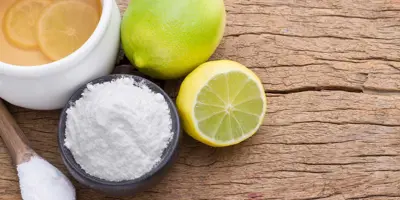
7 steps to create a DIY cardboard castle at home
Learn how to make a cardboard castle to fit their favourite interests. Find step-by-step cardboard castle DIY instructions and theme ideas here.
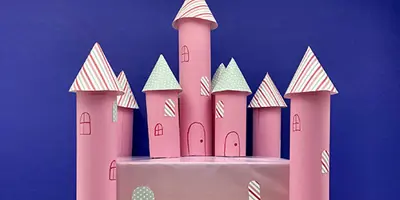
Reducing waste at home: The easy way
Find out how to save energy at home and reduce food waste with our top tips. Read on for handy pointers for making your household more eco-friendly.
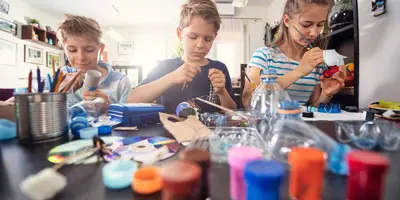
What does biodegradable mean and what is non-biodegradable?
Biodegradable and non-biodegradable? What do they mean?! Don’t fret, discover the definitions and biodegradable materials to become an eco-friendly pro!

How to lead a sustainable lifestyle in 5 key ways
Learn how to live more sustainably with our tips on diet, methods of transport, energy consumption and product choices. Find sustainable living examples here.

How is plastic packaging recycled, and what does it get turned into?
How can plastic be recycled? Discover the steps that plastic goes through in the recycling process, and how much plastic is actually recycled, here.
